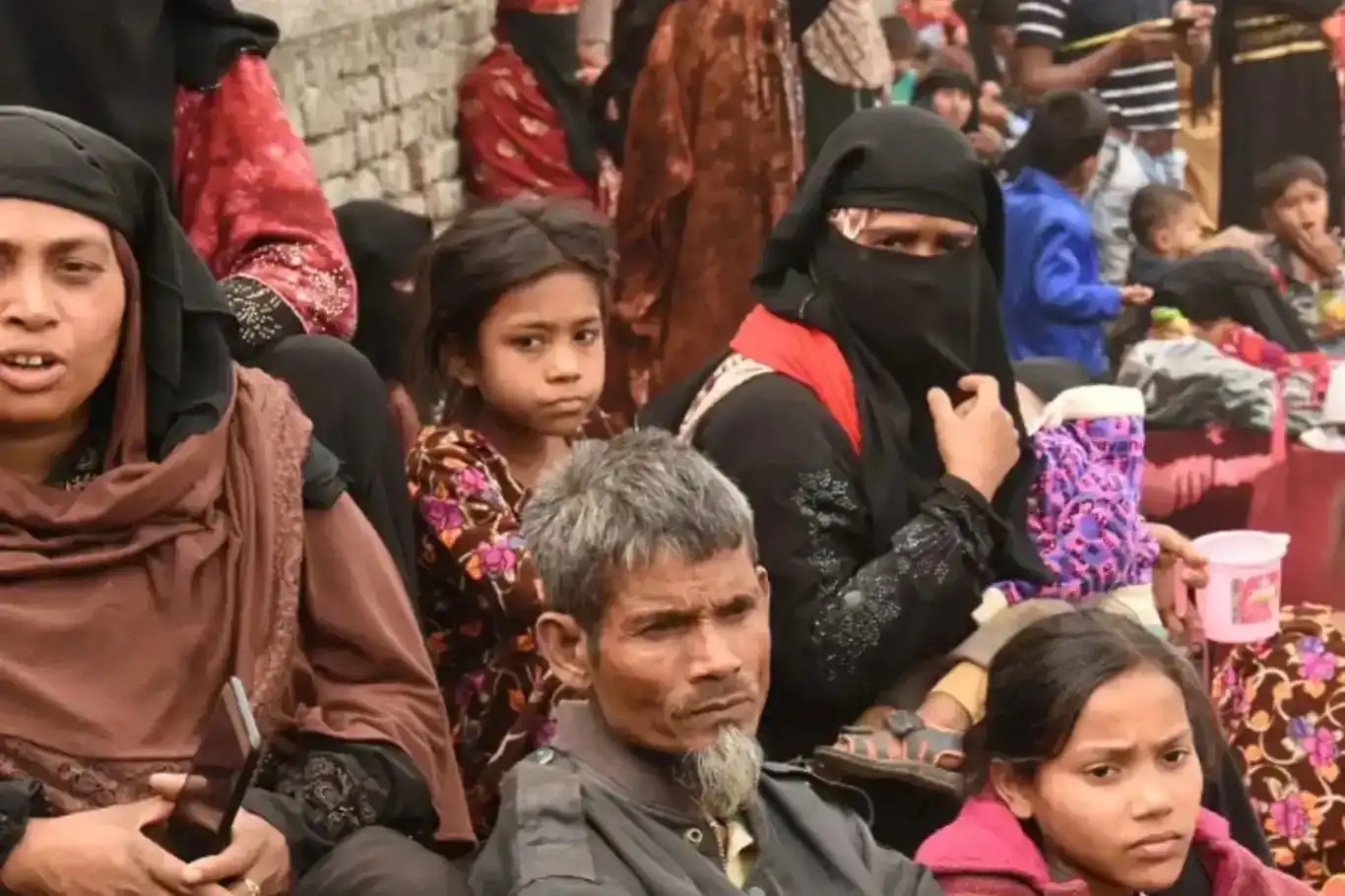Rohingya refugees still unsafe as Myanmar conflict intensifies


The Global Centre for the Responsibility to Protect has issued a stark appeal to members of the UN Human Rights Council (HRC), urging them to prioritise atrocity prevention and accountability for Myanmar’s mounting human rights crisis during the Council’s upcoming 60th session.
In a letter to HRC members, the Centre described Myanmar’s worsening humanitarian catastrophe since the February 2021 military coup, noting that civilians across 13 of the country’s 15 states and regions are trapped between junta offensives and clashes with armed groups.
The letter details widespread abuses by Myanmar’s military, including relentless airstrikes, scorched-earth campaigns, obstruction of humanitarian aid, and brutal attacks on civilians. Atrocities reported by the UN High Commissioner for Human Rights include the burning alive of civilians, dismemberment, rape, and beheadings.
According to the figures cited, at least 7,035 people have been killed, 22,263 remain imprisoned, and nearly 20 million people are in need of humanitarian aid—one million more than in 2024.
While the junta remains the primary perpetrator, the Centre also acknowledged abuses by anti-junta armed groups, including torture, sexual violence, extrajudicial killings, and forced recruitment, highlighting the dangerous environment for civilians nationwide.
The Global Centre emphasised the plight of the Rohingya minority, recalling the August 2017 “clearance operations” that forced over 900,000 Rohingya to flee to Bangladesh—a campaign a UN Fact-Finding Mission (FFM) determined amounted to genocide.
Renewed conflict in late 2023 has reignited suffering in Rakhine State, with both the military and the Arakan Army (AA) accused of indiscriminate airstrikes, drone attacks, forced displacement, and the destruction of entire towns. More than 400,000 people are internally displaced in Rakhine and Chin States, while another 200,000 have fled to Bangladesh since last year.
The letter urged HRC member states to use the upcoming Enhanced Interactive Dialogue on Myanmar to highlight the urgent risks facing Rohingya communities and other minorities. It stressed that any discussions on Rohingya repatriation must ensure their safety, given that both the junta and the AA continue to pose grave threats.
The Global Centre also drew attention to the worsening conditions in Bangladesh’s overcrowded refugee camps, where aid cuts and funding shortfalls risk further reducing food rations and essential services for victims and survivors.
The HRC established the Independent Investigative Mechanism for Myanmar (IIMM) in 2018 to collect and preserve evidence of genocide, war crimes, and crimes against humanity committed since 2011. The Centre called on member states to reaffirm their support for the IIMM, ensuring that perpetrators of atrocities are held accountable and that evidence continues to be preserved for future prosecutions.
As Myanmar’s crisis deepens, the letter warned, the international community must not lose sight of its responsibility to protect vulnerable populations. (ILKHA)
LEGAL WARNING: All rights of the published news, photos and videos are reserved by İlke Haber Ajansı Basın Yayın San. Trade A.Ş. Under no circumstances can all or part of the news, photos and videos be used without a written contract or subscription.
Thousands of pro-Palestinian activists poured into the streets of Bologna on Friday, condemning Israel’s ongoing assault on Gaza and denouncing the decision to host Maccabi Tel Aviv for a EuroLeague game.
A Peruvian court on Friday issued an international arrest warrant for former prime minister Betssy Chávez, who has taken refuge at Mexico’s embassy in Lima while awaiting trial over her alleged involvement in the 2022 political crisis that led to the ouster of then-president Pedro Castillo.
Turkish President Recep Tayyip Erdoğan landed in Johannesburg on Friday evening to participate in the 20th G20 Leaders’ Summit, which South Africa is hosting for the first time on 22–23 November 2025 under the theme “Solidarity, Equality and Sustainability.”
Ukrainian President Volodymyr Zelensky delivered a somber video address to the nation on Friday, describing the present diplomatic situation as “one of the most difficult moments” in Ukraine’s history and warning of an imminent “extremely difficult choice” facing the country.